- HOME
- Fleet Management
- How IoT Improves Fleet Management System
How IoT Improves Fleet Management System
- Last Updated : October 9, 2025
- 336 Views
- 5 Min Read
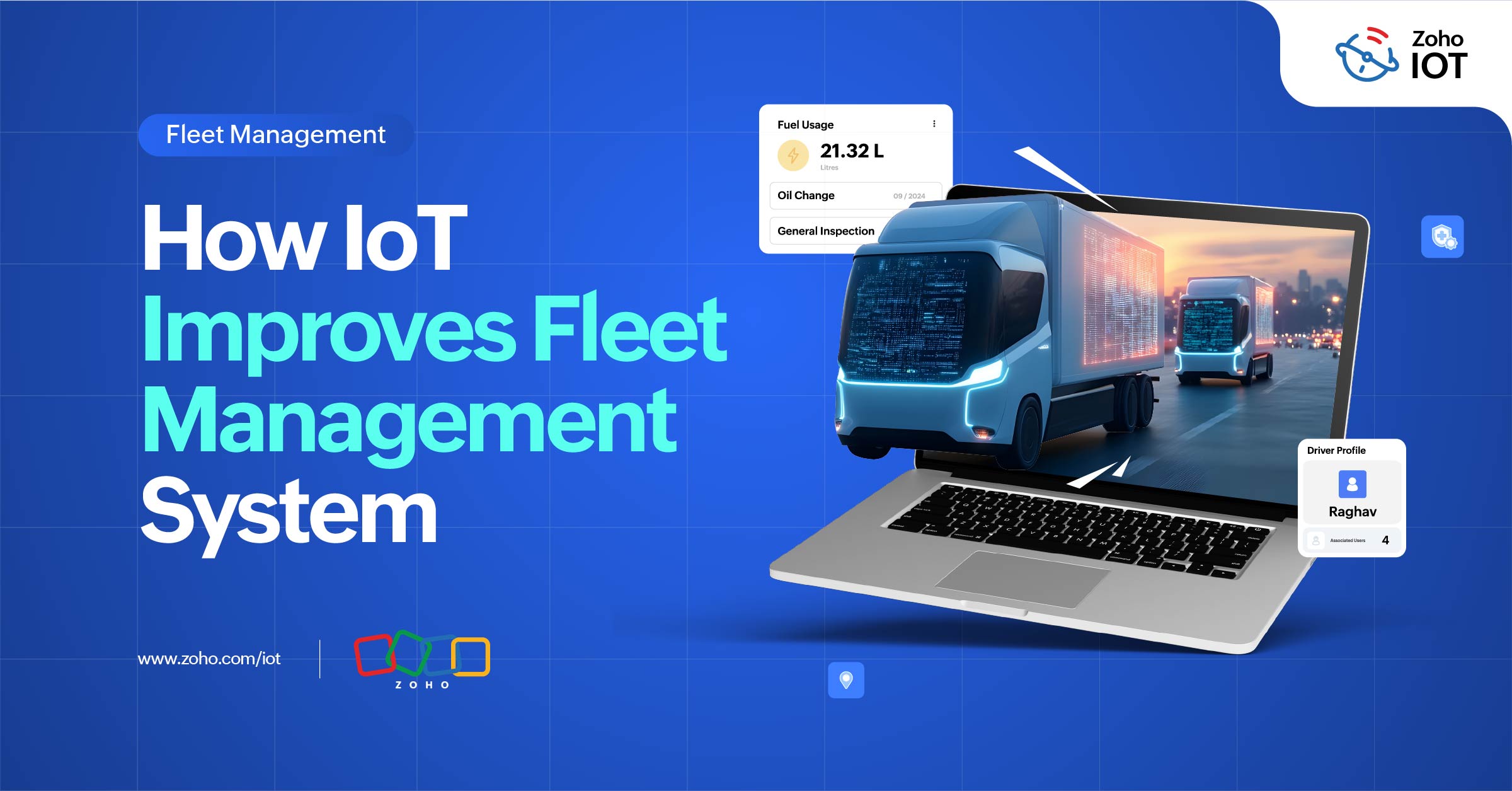
We all face countless decisions every day, and let’s be honest, a little nudge in the right direction is always welcome. While many things in life don’t give us that kind of control, technology often does, even if only in small ways.
When it comes to fleets, the entry of technologies like IoT has introduced smarter ways to gain control, helping mobility businesses optimize fleet resources and avoid massive losses.
To put this into perspective, a report by Grand View Research notes that the global IoT fleet management market size is projected to reach USD 20,609.6 million by 2030. Let’s take a closer look at what fleet management software really means in this context.
What is fleet management?
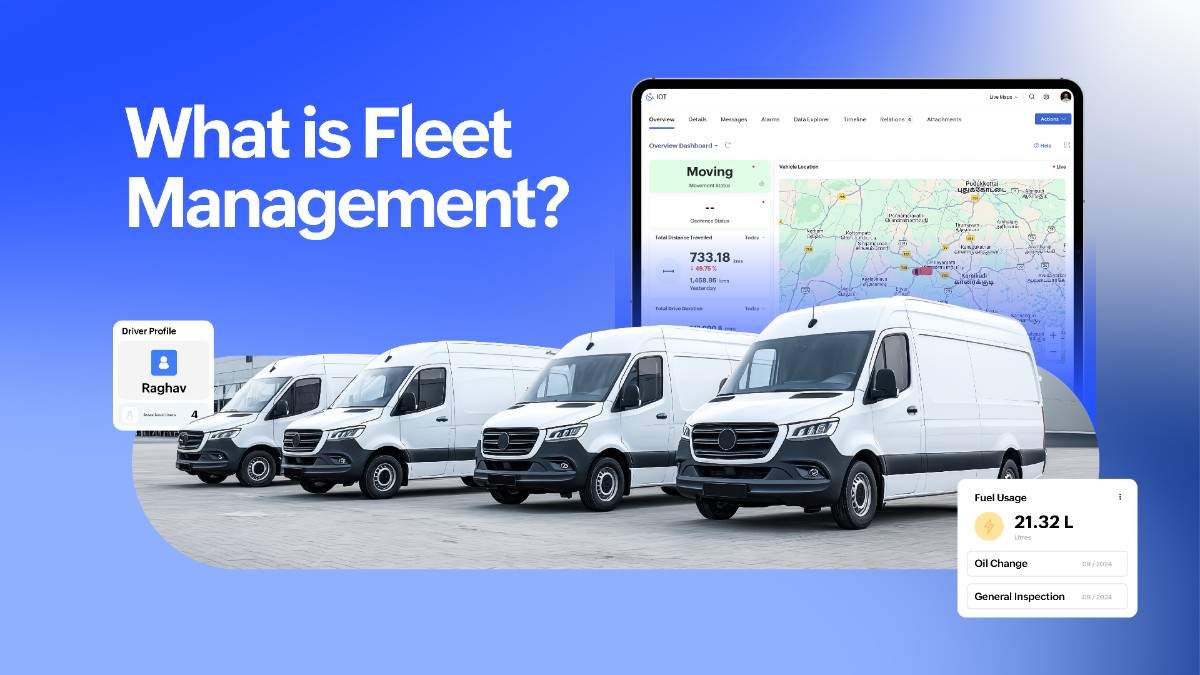
Fleet management or Vehicle fleet management is the process of overseeing and coordinating an organization’s vehicle fleet using vehicle fleet management software.
In the past, fleet managers had to stay in constant contact with drivers to know the status of deliveries, vehicle health, or fuel levels, relying entirely on the driver’s word. But with the onset of technologies like IoT, fleet managers can now track vehicle location, spot detours, monitor fuel usage, and even observe driver behavior in real time through a mobile app or web platform.
Today, fleet managers can control everything remotely, saving time, reducing costs, and building credibility with optimized operations for their customers.
How was fleet management before IoT?
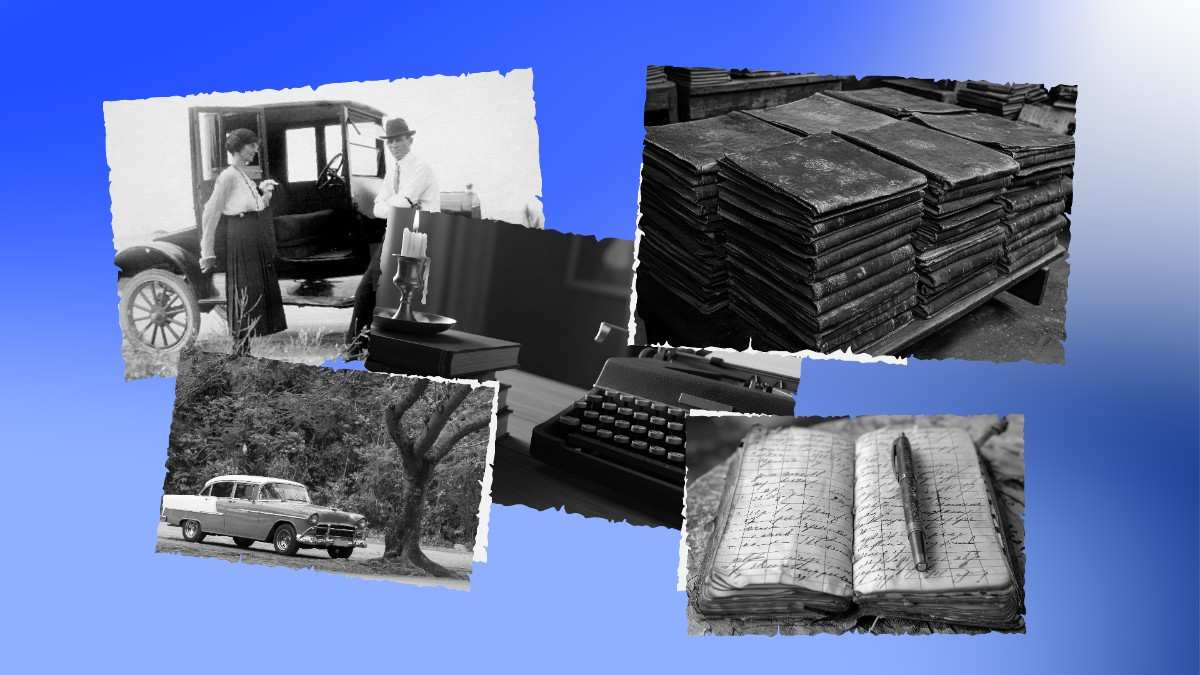
As you can imagine, It was fully manual. Fleet managers had to maintain paper logs for each vehicle. From the start to the end of the trip, managers needed to stay in constant contact with the driver to get updates about the vehicle's health and the routes taken. They would only learn about any detours or issues if drivers reported them, as managers had very little real-time visibility into on-road happenings.
When a trip failed, it became complicated to determine what went wrong, as there were no accurate reports or insights into incidents along the way. Every failure incurred unnecessary expenses, making vehicle fleet management less efficient and more costly.
What's Fleet Management with IoT?
![]()
It’s always helpful to have a trusted person watching over things we can’t, especially when multiple tasks happen at the same time.
That’s exactly what fleet management with IoT does, except the “trusted person” is a network of sensors and devices that never blinks, never rests, and reports everything instantly.
In IoT fleet management, sensors are embedded in vehicles and connected to cloud-based software for the fleet manager. The data captured is translated into meaningful visuals, giving managers a clear picture of what’s happening with each vehicle on the road.
Unlike traditional fleet management, IoT fleet management provides a powerful set of tools and insights that transform how fleets are monitored, maintained, and optimized. For more brief understanding of the offerings of a vehicle fleet management software, check Zoho IoT fleet management solution
Let’s take a closer look at what IoT really brings to vehicle fleet management.
Real-time Vehicle Tracking & Routing
IoT systems use GPS sensors to monitor the real-time location of vehicles, giving fleet managers complete visibility and control. Using telematics data, fleet managers can analyze traffic patterns and optimize routes, ensuring timely deliveries while reducing fuel consumption.
Predictive Fleet Maintenance
Issues such as tire pressure, engine health, and brake wear are tracked by IoT sensors in real time, and alerts are sent to fleet managers often before problems actually occur. This enables proactive maintenance, reduces downtime, and extends the lifespan of vehicles.
Driver Behavior Monitoring
Analyze the driving habits of your fleet drivers, such as harsh braking, speeding, and idling, as IoT systems alert you to any irregularities. Improve these habits by providing targeted training, ensuring driver safety, and reducing accidents.
Fuel and Compliance Tracking
Easily track fuel levels, usage, mileage, and consumption patterns by enabling IoT in your fleet. Stay compliant with regulatory standards, as IoT systems can automate reports, log driving hours, and send timely maintenance reminders, helping you avoid unnecessary penalties.
Geo-fencing
Create virtual boundaries around specific sites and get instant alerts whenever a vehicle enters or exits the area. Geo-fencing helps prevent unauthorized access, reduce the risk of theft, and ensure the safety of your trucks, deliveries, and drivers, giving you greater control over fleet operations.
Key IoT components in fleet management
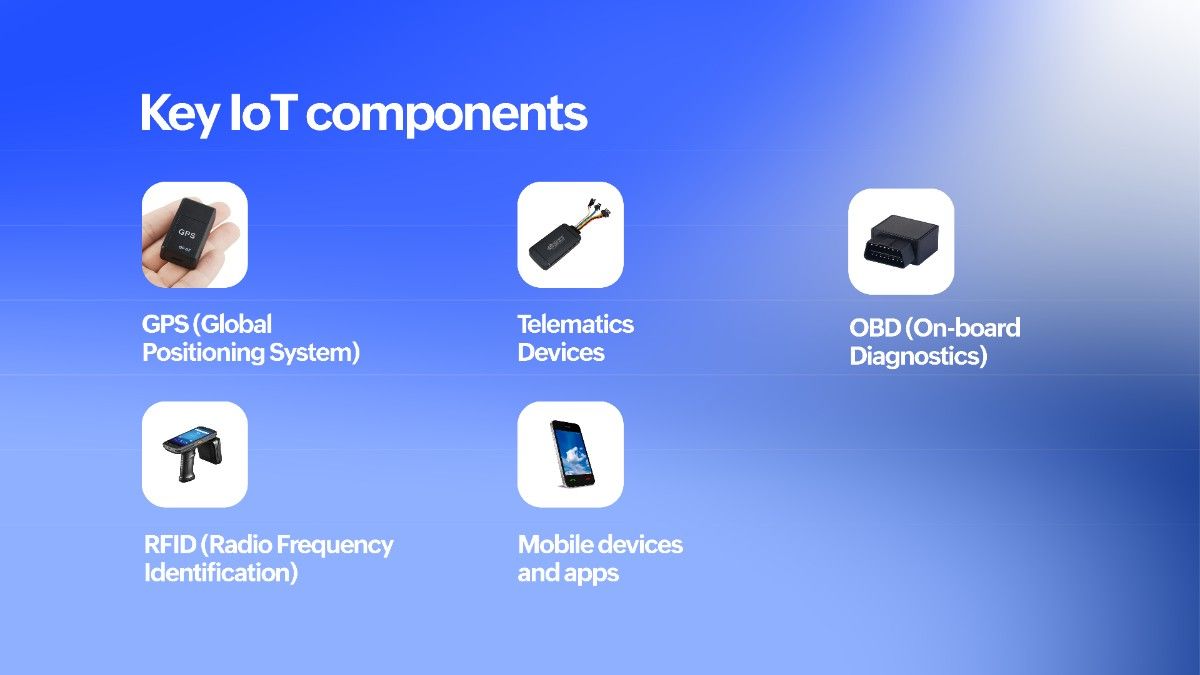
- GPS (Global Positioning System) - Tracks the real-time location of each vehicle, preventing detours and unauthorized access.
- Telematics Devices - Collects and transmits data on vehicle performance, driver behavior, and location for better decision-making.
- OBD (On-board Diagnostics) - Monitors engine health and detects malfunctions early, preventing asset failures and extending asset lifespan.
- RFID (Radio Frequency Identification) - Identifies and tracks assets across the supply chain, reducing manual errors and preventing misplaced items.
- Mobile devices and apps - Enables fleet managers and drivers to access vehicle health status, generate timely reports, and receive alerts for irregularities.
Benefits of IoT fleet monitoring
- Real-time Tracking and Monitoring – Know the exact location of your vehicles in real-time, monitor routes taken, and stay informed of any unusual behaviors.
- Saving Fuel and Cost – Using OBD devices, track vehicle health and fuel usage to optimize routes, reduce wastage, and plan cost-saving strategies for the future.
- Enhanced Asset Maintenance – With predictive maintenance, address issues like tire pressure, engine health, and driver behavior early, ensuring a longer asset lifespan.
- Operational Efficiency – Automate reports, streamline dispatching, reduce downtime, and optimize delivery schedules, ensuring maximum fleet productivity.
- Improved Safety – Monitor driver behavior (speeding, harsh braking, long hours), set geo-fencing alerts, and receive instant notifications for emergencies, ensuring both driver and cargo safety.
Future of IoT fleet management
The 5G Advantage
With connectivity at the core of IoT, high-bandwidth, low-latency networks like 5G can ensure instant transmission of vehicle data, even in remote areas. Moreover, organizations looking to expand their vehicle fleets can handle vast amounts of data seamlessly, without buffering.
The Rise of Predictive AI
In the future, AI will be able to predict, suggest, and make decisions from scheduling vehicle maintenance, recommending fuel-efficient routes, to issuing warnings for risky driving patterns. By analyzing the massive amounts of raw data generated, AI delivers valuable insights even before an issue is detected.
The Road to Autonomy
With the eventual rise of self-driving cars, the future may see these driver-less vehicles making decisions on their own. By integrating IoT, they can process data from sensors on traffic conditions, routes, and vehicle health to act accordingly. IoT-powered autonomous vehicles can help reduce fuel costs, enable predictive maintenance, and optimize overall fleet performance.
Vehicle Fleet management with Zoho IoT
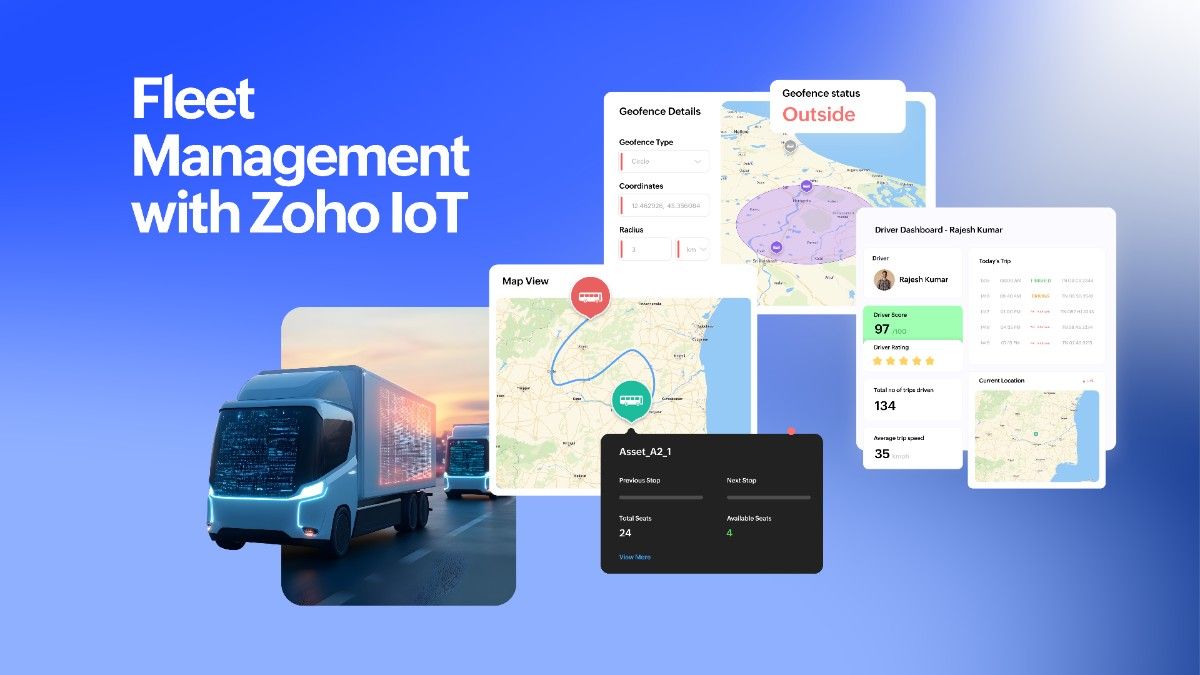
Zoho IoT Fleet Management offers you:
- End-to-End Fleet Management: Get a clear overview of deployed devices, driver statuses, vehicles on trip, alarm summaries, and trip logs, all in real-time.
- Device Management: Track device count and monitor active devices from a single dashboard, making it easier to streamline and manage your vehicle fleet.
- Fault Detection: Audit failed trips effortlessly with trip logs and quick route history GIFs to pinpoint the exact cause.
- Data-Driven Insights: Analyze sensor data against thresholds you set, and let the platform predict potential issues and solutions before they escalate.
With connected vehicles shaping the future and scalability being key to your business growth, talk to us by scheduling a demo to see how Zoho IoT can simplify your fleet operations.